International
Grenada urges UN to respond with greater urgency to crises
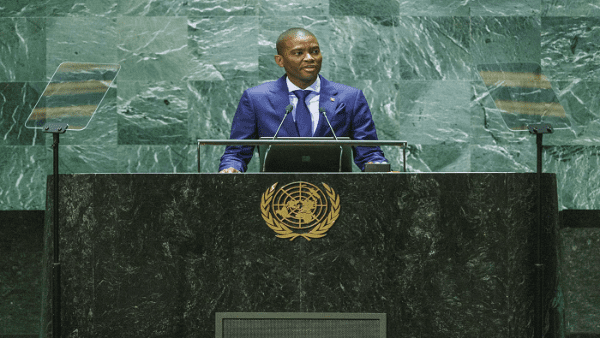
September 23 |
The Prime Minister of Grenada, Dickon Mitchell, intervened in the fourth day of debates of the 78th session of the United Nations General Assembly (UN), held in New York City, United States.
During his speech, the premier reflected on the context of the pandemic and the resilience of the Grenadian people, and in that sense, he stressed the importance of international cooperation, the sharing of resources, information and continuous dialogue through the UN.
“We continue to live in a world and a context where our citizens continue to suffer from hunger, poverty, gender-based violence, climate disaster, and other problems that affect our planet and, above all, that has to do with the aspirations of achieving the 17 Sustainable Development Goals (SDGs),” he stressed.
Likewise, he urged the UN to unite and respond to crises with the utmost urgency through multilateral efforts and collaborations, so that everyone helps their fellow citizens when in need.
He referred to climate action and stated that “a climate disaster of some kind is likely to occur in one or more of the member states and will have devastating effects on our citizens, our economies and will inevitably affect the development situation and progress of the country in question”.
He also called for a special effort in climate action and justice for those on the front lines of the crisis and demanded the need for urgent efforts to address financing and tackle climate change efforts.
“States that contribute the least to the climate crisis bear the highest burden and without immediate and deep cuts in emissions across the board, I fear we are headed down a path of worse outcomes if we don’t take meaningful action now,” he said.
The Premier called for Latin America and the Caribbean to remain a Zone of Peace and reiterated the call for the elimination of the economic and financial blockade imposed by the United States against Cuba.
He also requested that Cuba be removed from the list of countries sponsoring terrorism. With respect to Venezuela, he reiterated the call to end the imposition of unilateral coercive measures contrary to the norms and principles of international law and the UN Charter.
He expressed concern about the situation in Haiti and the state of violence, and asked for support in security and humanitarian needs to counteract armed gangs. In this regard, he said that the support of the Security Council is expected as a demonstration of commitment.
International
Javier Milei vows to work ‘side by side’ with the U.S. on trade rules
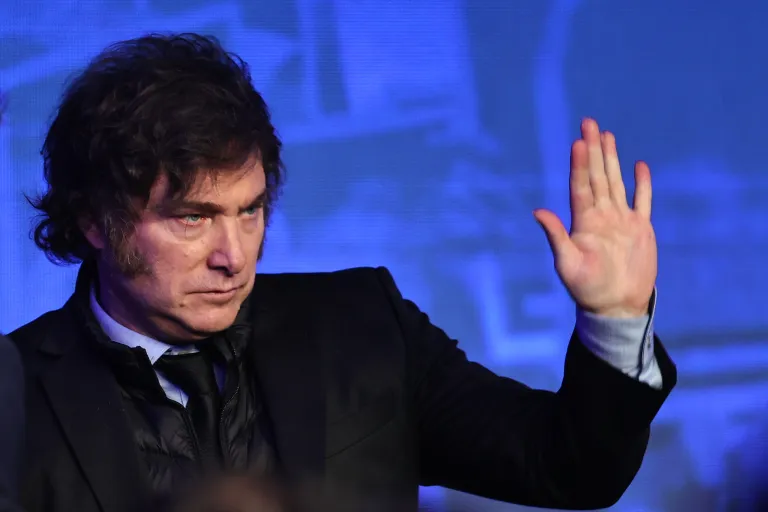
Determined to work “side by side” with the United States, Argentine President Javier Milei announced in Mar-a-Lagothat his government will modify trade regulations to meet the requirements of Donald Trump’s newly imposed tariffs.
Milei arrived in Florida amid the trade war triggered by the latest round of tariff hikes announced by the Republican leader. While many countries are considering retaliation, Milei’s ultraliberal Argentina has opted to adapt instead.
“Argentina will move forward in adjusting its regulations to comply with the reciprocal tariff proposal drafted by President Trump,” Milei stated at the Gala of American Patriots, organized by the Make America Clean Again (MACA) Foundation and the We Fund the Blue NGO, according to his office.
He further explained that Argentina has already met nine out of the 16 necessary requirements and has instructed his administration to comply with the remaining ones in order to resolve trade asymmetries with the U.S. in a short time frame.
International
Paraguay summons Brazilian ambassador over Itaipú espionage scandal
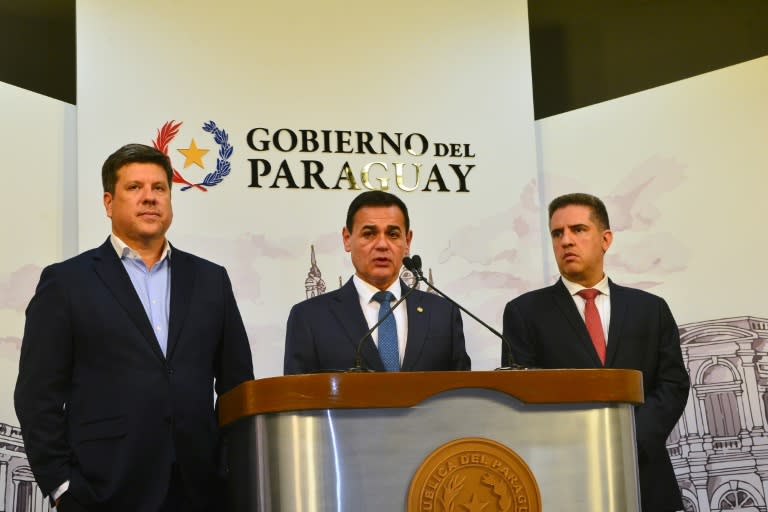
Paraguay summoned the Brazilian ambassador in Asunción on Tuesday to demand “explanations” and called its own representative in Brasília for consultations following Brazil’s acknowledgment of an espionage operation. The Brazilian government, led by President Luiz Inácio Lula da Silva, attributed the operation to the previous administration.
The surveillance effort aimed to uncover Paraguay’s position in now-suspended negotiations with Brazil regarding the pricing of electricity from the binational Itaipú hydroelectric plant, according to reports in the Brazilian press.
The Brazilian government “categorically denied any involvement in the intelligence operation,” stating in a Foreign Ministry communiqué on Monday that the espionage was carried out under former President Jair Bolsonaro’s administration (2019-2023).
“The operation was authorized by the previous government in June 2022 and was annulled by the interim director of the (state intelligence agency) ABIN on March 27, 2023, as soon as the current administration became aware of it,” Brazil’s government asserted.
Paraguay’s Foreign Minister Rubén Ramírez announced that Brazilian Ambassador José Antonio Marcondes de Carvalho was summoned “to provide detailed explanations” regarding the operation. Additionally, Paraguay recalled its diplomatic representative in Brasília “to report on aspects related to the intelligence activity conducted by Brazil regarding Paraguay’s government affairs.”
International
Elon Musk to step down as government advisor, per Trump insiders
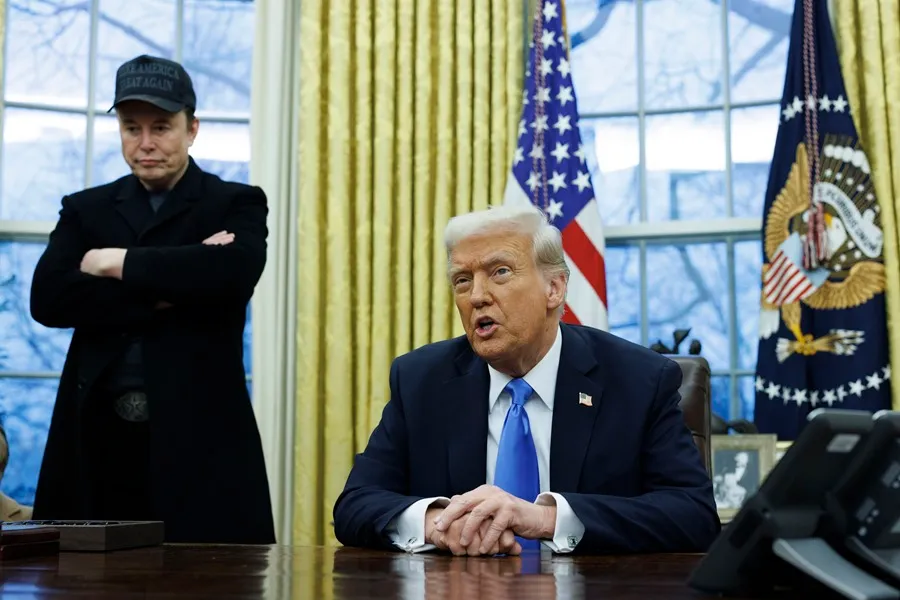
President Donald Trump has informed his inner circle that Elon Musk will be stepping down from his role as a government advisor, according to a report by Politico today.
Citing three individuals close to Trump, Politico states that the president is pleased with Musk’s leadership at the Department of Government Efficiency (DOGE), where he has implemented significant budget cuts. However, both have agreed that it is time for Musk to return to his businesses and support Trump from a different position outside the government.
A senior administration official told Politico that Musk will likely maintain an informal advisory role and continue to be an occasional visitor to the White House. Another source warned that anyone thinking Musk will completely disappear from Trump’s circle is “deluding themselves.”
According to the sources, this transition is expected to coincide with the end of Musk’s tenure as a “special government employee,” a temporary status that exempts him from certain ethics and conflict-of-interest regulations. This 130-day period is set to expire in late May or early June.
-

 Central America5 days ago
Central America5 days agoU.S. Homeland Security Secretary urges Mexico to strengthen Guatemala border
-

 Central America5 days ago
Central America5 days agoPanama grants Martinelli 72-hour extension to travel to Nicaragua
-

 International3 days ago
International3 days agoParaguay summons Brazilian ambassador over Itaipú espionage scandal
-

 International5 days ago
International5 days agoTrump urges Putin to reach peace deal
-

 Sports3 days ago
Sports3 days agoFilipe Luis debuts as coach in Copa Libertadores with Flamengo
-

 Central America3 days ago
Central America3 days agoGuatemalan police officer killed in mob riots over baby kidnapping
-

 International3 days ago
International3 days agoElon Musk to step down as government advisor, per Trump insiders
-

 Sports3 days ago
Sports3 days agoVenezuela investigates 18 baseball players seeking asylum in Spain
-

 International3 days ago
International3 days agoÓscar Arias: Trump’s trade policies are a step backward
-

 Central America22 hours ago
Central America22 hours agoPanama’s former president Martinelli claims political enemies tried to kill him
-

 International3 days ago
International3 days agoMilei vows to make Argentina so strong that Falkland Islanders “choose” to join
-

 International3 days ago
International3 days agoICE agent’s arrest of suspect sparks controversy in Boston
-
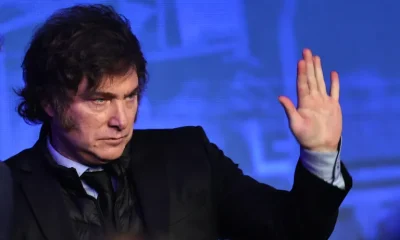
 International22 hours ago
International22 hours agoJavier Milei vows to work ‘side by side’ with the U.S. on trade rules















